Malinka Ristevska-Jordanova - one of the few real experts in the field of European integration, is our interlocutor in discussing the latest developments related to the messages from Bled, Paris and Brussels, as well as their placement in a domestic context where Macedonia has to choose between national dignity and the path to the EU. In the interview, she clarifies many issues and warns that the debate about enlargement in our public space is completely "poisoned" at the moment. She points out that current main discussion when it comes to the Western Balkans is the "phased integration" model, but she also says that a forced solution based on the French proposal is not sustainable either in the short or long term.
What is happening with the European integration process? The impression is that France dropped a "bomb" again?
- France did not drop a bomb. Its position is consistent – there is no enlargement without EU reforms or institutional changes. EU reforms should strengthen the EU's strategic autonomy – a concept promoted by France. They are worried that even now - with 27 members – there are problems to "advance on essential topics", let alone with 32 or 35 members.
The latest "translation" of Macron's position is that he was referring to different speeds in joining the EU, and our authorities immediately interpreted this to mean that Macedonia will be the champion in the Balkan rally. How feasible is that?
- The interpretation was a typical spin. The speech is publicly available. Macron is clearly talking about an EU concept as "Europe in different speeds", different levels of policy integration, as part of the future EU reform. And in what "speed" we would be and when we would enter such speed, is another question.
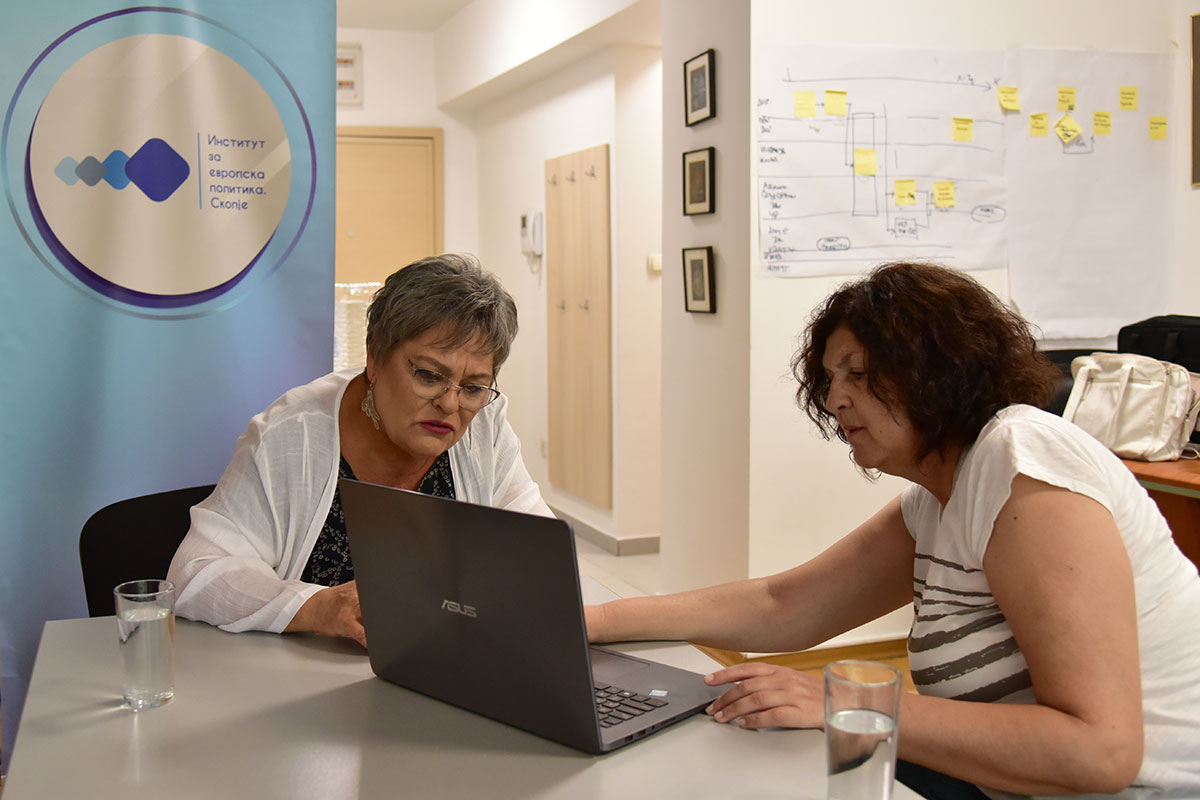
What is the year of 2030? Pre-election hook for votes, wide opening of the European gates for the Western Balkans or another dream of the tired Skopje that we will become a European member?
The year of 2030 is not real. The government needs bait to implement what it promised last year without any grounds. The so-called "momentum" does not exist.
The enlargement debate in our public space is currently completely "poisoned", and the public has no idea of the overall current context in the EU. There is no door wide open for enlargement. There is an ongoing debate about the enlargement, there is a will to give some "interim" carrots, but not the whole carrot. With the candidacies of Ukraine and Moldova, and possibly of them starting the negotiations, not only the competition has increased, but also the type of problems. The question of the Union's integration capacity is being brought up in the discussions. The size of Ukraine has potentially huge implications for the Union budget as well.
What is currently being discussed most specifically for the Western Balkans is the "phased integration" model, that is, what would be given to the countries of the Western Balkans if they implement reforms in predefined phases. This concept entered the discussion in the EU through Austria's non-paper. It envisages "carrots" in stages - access to the EU market, access to EU funds, presence in decision-making processes, depending on the success of the reforms. It is a model that, among other things, takes time.
Moreover, we should also take into account that there are upcoming elections at the EU level.
The disparity in the statements given by representatives of various EU institutions has, unfortunately, contributed to the confusion. But at the same time it proves that there is no agreement, that there is no "momentum".
This skewed public debate, which further plays on "fear" by labeling those who hold a different opinion rather than rational discussion with arguments, is fertile ground for harmful extremes.
Bulgarian package in the Brussels mechanisms
Is the Bulgarian veto the only reason Macedonia is slowly moving towards the EU? Or to formulate the question differently: Are the Bulgarian demands an alibi for Brussels for the refusal to admit Macedonia to the EU?
-First of all, they are no longer requirements but they are a "Bulgarian package" - built-in mechanisms in the accession process to guarantee the fulfillment of Bulgarian conditions. And those mechanisms are the basis for Bulgaria to request the incorporation of the already incorporated conditions in all further steps of the process, and there are many of them with the new Methodology.
We need to be realistic that a series of vetoes from the neighbors are a significant reason for the country's slow progress towards the EU, especially as it affects the motivation for reforms. But it is more about a combination of factors, in which our insufficient internal cohesion and resistance to external pressures are very significant factor, which provided a "favorable ground" for such blackmail from neighboring states.
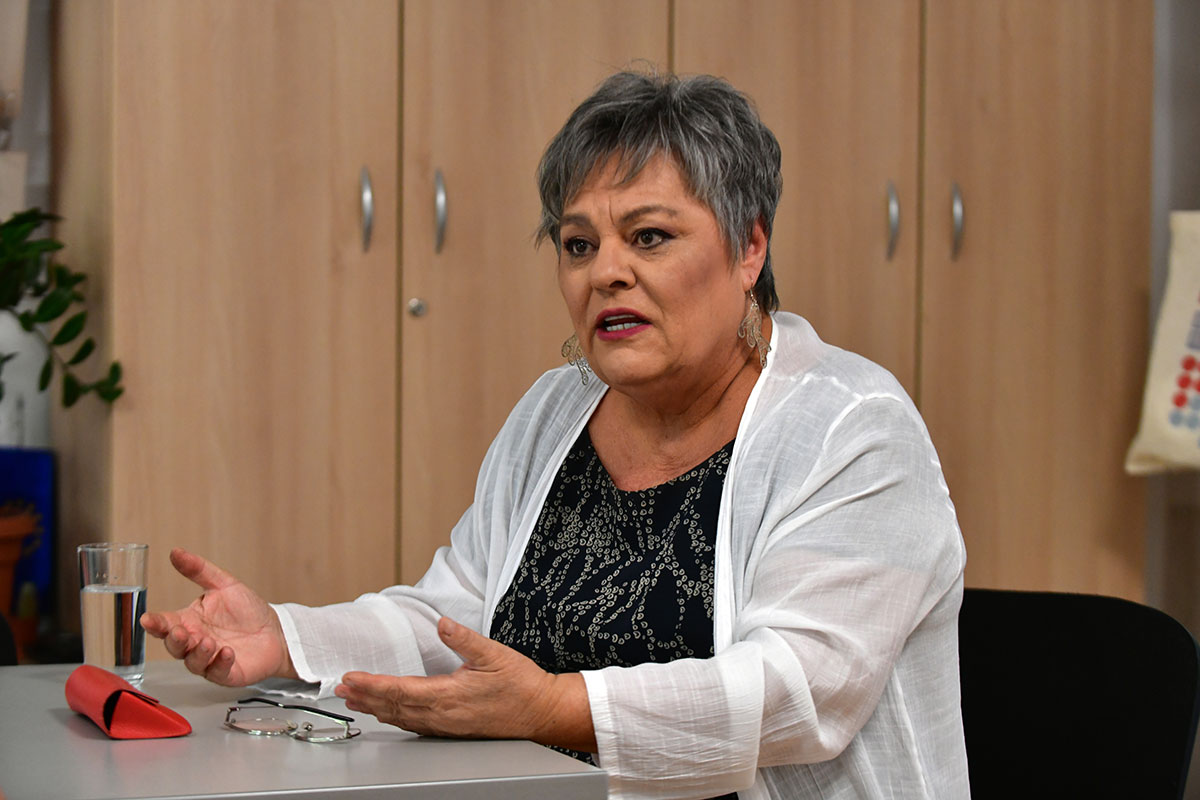
You were the head of Shekerinska's cabinet when Macedonia got the candidate status. Did you think then that the country will wait for almost two decades until the beginning of the negotiations?
- Honestly, we were more optimistic, but, without false modesty, we worked much more thoughtfully and seriously. The context was different – it was the time of the Thessaloniki agenda when the perspective of EU membership opened up more widely (although even then we were not satisfied with the final result). The political will was crucial, and thanks to a large extent to the political position, skills and work of the then Deputy Prime Minister Shekerinska, a Macedonian approach to EU-oriented reforms was formed and implemented, which was then an example in the region.
From the current perspective, we probably should have submitted the application for membership earlier, right after the membership of the Council of Europe, and put ourselves on the map earlier, but that is a broader topic.
Macedonia is going backwards
At what station is Macedonia presently on the EU road compared to Montenegro, Serbia and Albania?
- If you look formally, now we are behind them. Montenegro and Serbia are in negotiations, Albania has held the first intergovernmental conference, Macedonia only a political meeting – the first part of the first intergovernmental conference.
If you look at the aspect of reforms, the situation is not very bright anywhere. But what is worrying is that Macedonia has been stagnating or actually regressing for years, especially in the areas that are now the most important in accession - Foundations. It is precisely in these areas that we were both formally - according to the annual report assessments – but also substantially ahead of the others. This, for example, was demonstrated during the assessment of visa liberalization in 2009. And we were far ahead in harmonizing the legislation. That advantage was not maintained, let alone strengthening it as "champions".
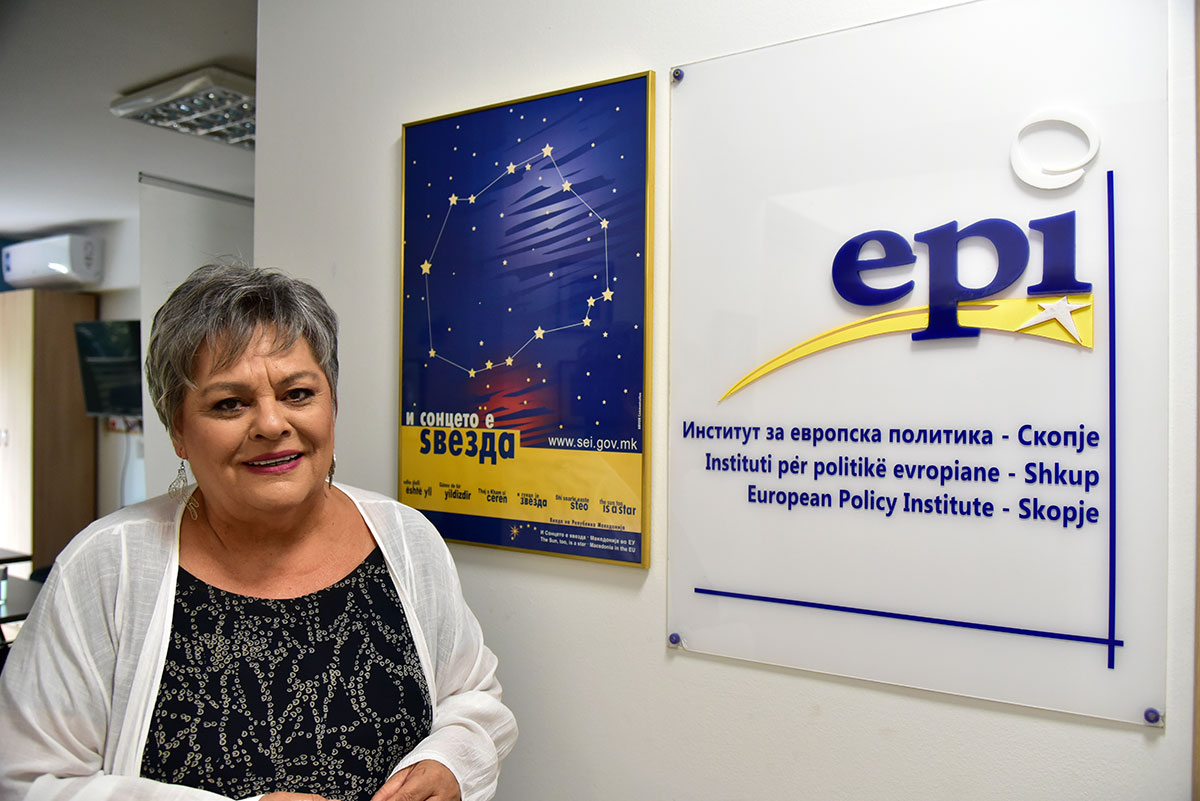
What would be the step that will return Macedonia to the European integration path if there is a fiasco with the constitutional changes?
- First of all, I would not call it a fiasco with the constitutional changes. Simply, there will be (no) adoption of something for which the Government did not have enough political support, and not even remotely citizen support. The possible "buying" of political support for constitutional amendments with an amnesty for organized crime with the recent amendments to the Criminal Code only further alienates political leaders from the citizenry. This vile cowardly egg under the guise of "alignment with the EU" will certainly take us significantly away from the EU.
Let me remind you that the constitutional amendments are only part of the "salami" tactic to gradually swallow all Bulgarian conditions and provide an internal legal basis for the demands that will follow. But not to repeat myself, I already wrote about this in my ’double naked’ column.
I think the key word is credibility – both internally and externally. In order to have a credible offer for EU membership, and not just "We want to be in the EU, you owe us", we need to have a clear vision of how to do it, and not wait for someone to constantly push us. In order to have a clear vision, you need to have quality dialogue - first internally, and then with the EU (in all fields - from issues such as the Bulgarian veto to sectoral policies). The key is to increase internal cohesion, however difficult that may be, rather than constantly feeding rifts along all lines. Here I will especially emphasize the risk of highlighting divisions along ethnic lines.
Unfortunately, the current political elites have shown a complete inability for such a fundamental change. What happened is exactly the opposite – a compromise of the European integration process and divisions of the citizens along all lines.
Lies and spins about European integration
Do you think that the government campaign "We are Europe" will be successful?
- No. It is a pity to use government money for this purpose. The citizens have already clearly said: We want to be in the EU, but not under these conditions. I do not believe that the persistent spin that "someone is blocking European integration, and the people want to be in the EU" will succeed, especially not in the long term. At the same time, many lies are used. For example – that the migration will stop with the negotiations or membership. Experience shows the opposite - in almost all countries of the last wave of enlargement, migration to the EU increases after membership.
Another rumor that has been created is "Let the negotiations begin and the real reforms will begin, because the EU will sort us out". How many times do they have to repeat to us that we have to do the work, and they can only help us. The fact is that the transformational ability of the EU has been reduced and that is exactly why the EU is now looking for ways to increase it by giving different benefits in a situation where there is no set date for membership. Another problem is that the transformative ability stops when the country becomes an equal member of the EU – this is the problem with the reversible processes or the so-called illiberal tendencies in the EU (the examples of Hungary and Poland).
What we actually have in a situation where fairy tales about a rosy future are sold, and in reality national interests are sacrificed, is a great disappointment and mistrust of the citizens - both in the government and in the EU. Citizens expect courage from their political leaders to protect national interests and fight crime, not the so-called courage to compromise all those values.
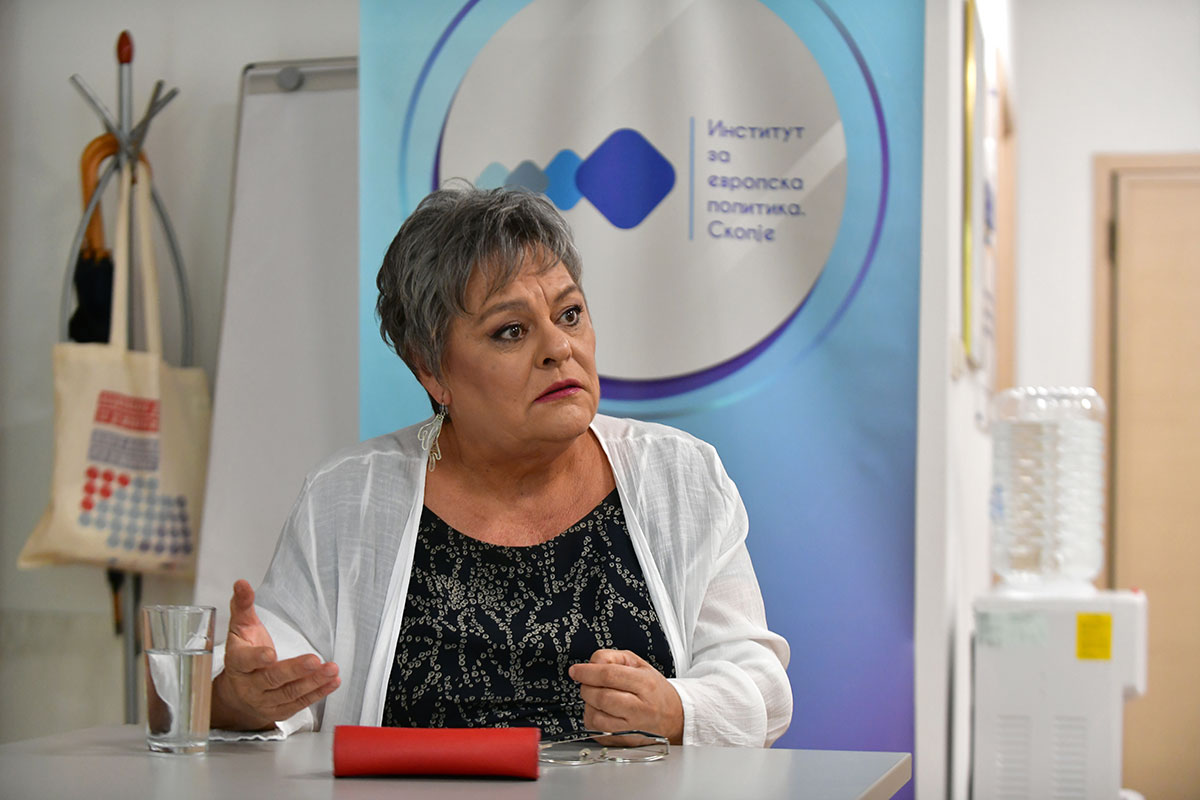
How much trust can be put to the political right that is preparing to come to power, in their saying that they will keep the focus on European integrations?
- There are two big problems with the credibility of this offer: The first is "elections, then we will tell you what we will do" and the second is the failure to distance oneself from the party's policies when it was in power, especially the wiretapping scandal. In addition, if the "criminal amnesty in exchange for constitutional amendments" deal is confirmed, it will destroy the opposition bid.
In addition, the constant relationship with political proponents of illiberal tendencies in the EU actually complicates relations with European political subjects.
There is no goodwill
Is it possible to withdraw from the signed bilateral agreement with Bulgaria and even from the negotiation framework?
- We are talking about two completely different documents, although the implementation of the Agreement is set as one of the conditions in the negotiation framework.
Withdrawal from the bilateral agreement is possible, it is also stated in the agreement itself, the question is how rational it would be. Formally, changes are also possible with the consent of both parties. Despite the asymmetry of the Agreement, a bigger problem is its interpretation and implementation, i.e. the fact that Bulgaria does not approach the Agreement with bona fide or with good faith.
The negotiating framework is an EU document, but in principle it consults the candidate country about it. In the EU, there are always solutions when there is political will. For example, the EU found a way, using an additional document with Montenegro and Serbia, to apply the new Enlargement Methodology, even without changing the negotiating framework. The forced solution based on the French proposal (which, let us not forget, also includes the conclusions of the Council) is not sustainable even in the short term, and even less in the long term.
Let me remind you, the EU has not yet published the Negotiating Framework, that is expected after the (at the time being still likely) constitutional amendments.
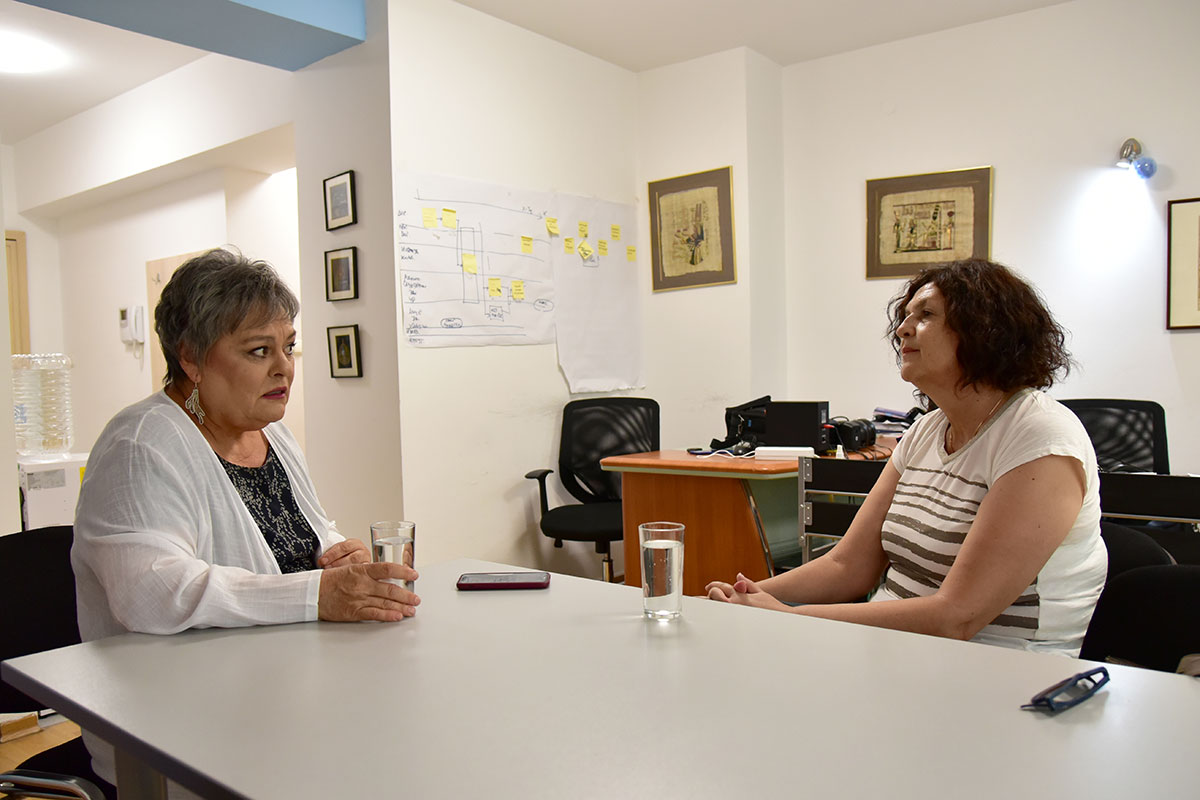
What would you do now in this situation?
- In this very critical period of lost trust from the citizens in the current political leaders, a change is needed, not only in the narrative, but in the political approach.
- Let me repeat, the key word is credibility – both inside and outside. There is no excuse for the current rush. We need stability, security, reason. There is time and space for everything, except for new mistakes. The only urgency is to stop the spiral of mistakes. If you want to express ourselves for concretely - it's time to raise the handbrake in order to put a stop to the current downward spiral. To stop the divisions along all lines in the name of the "bright European future", to stop the dismantling of the institutions. And then, via dialogue and internal strengthening, to set, and what is most importantly, to implement, clear priorities, which will actually serve, above all, the citizens of this country.
Should the international community have stood more firmly behind Macedonia after the Prespa Agreement?
- Absolutely yes. But we should have focused ourselves differently – instead of quick concessions to bilateral demands that have nothing to do with the EU acquis – to put pressure on the member states, through quality dialogue and, of course, with a credible record of true and real reforms.
This interview was prepared by the Institute of Communication Studies.

